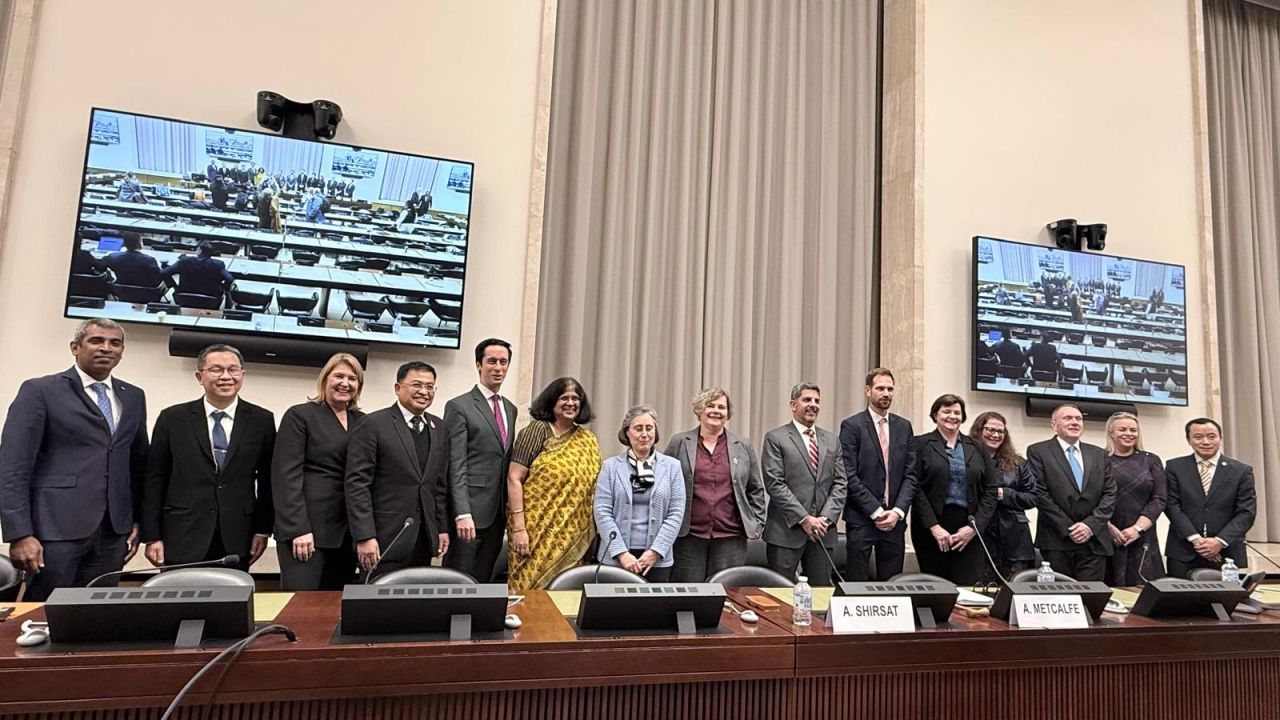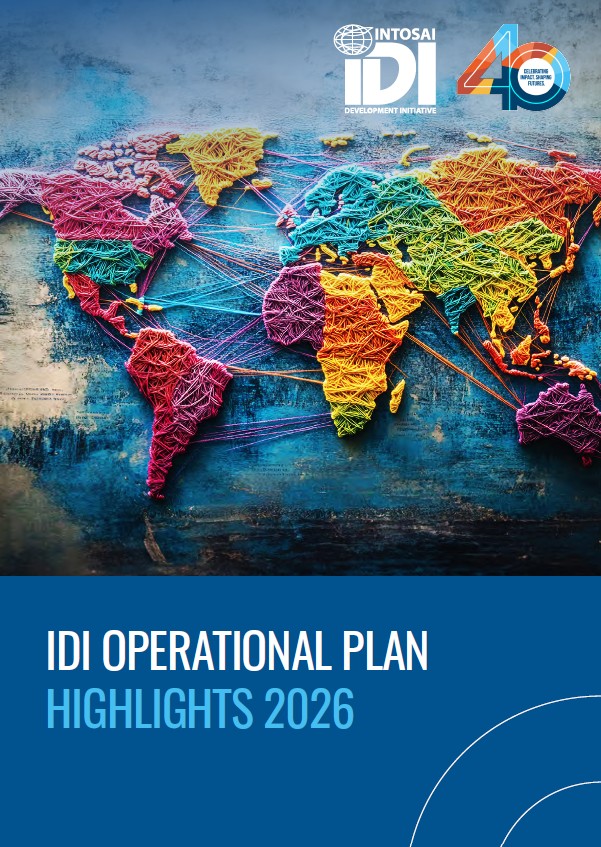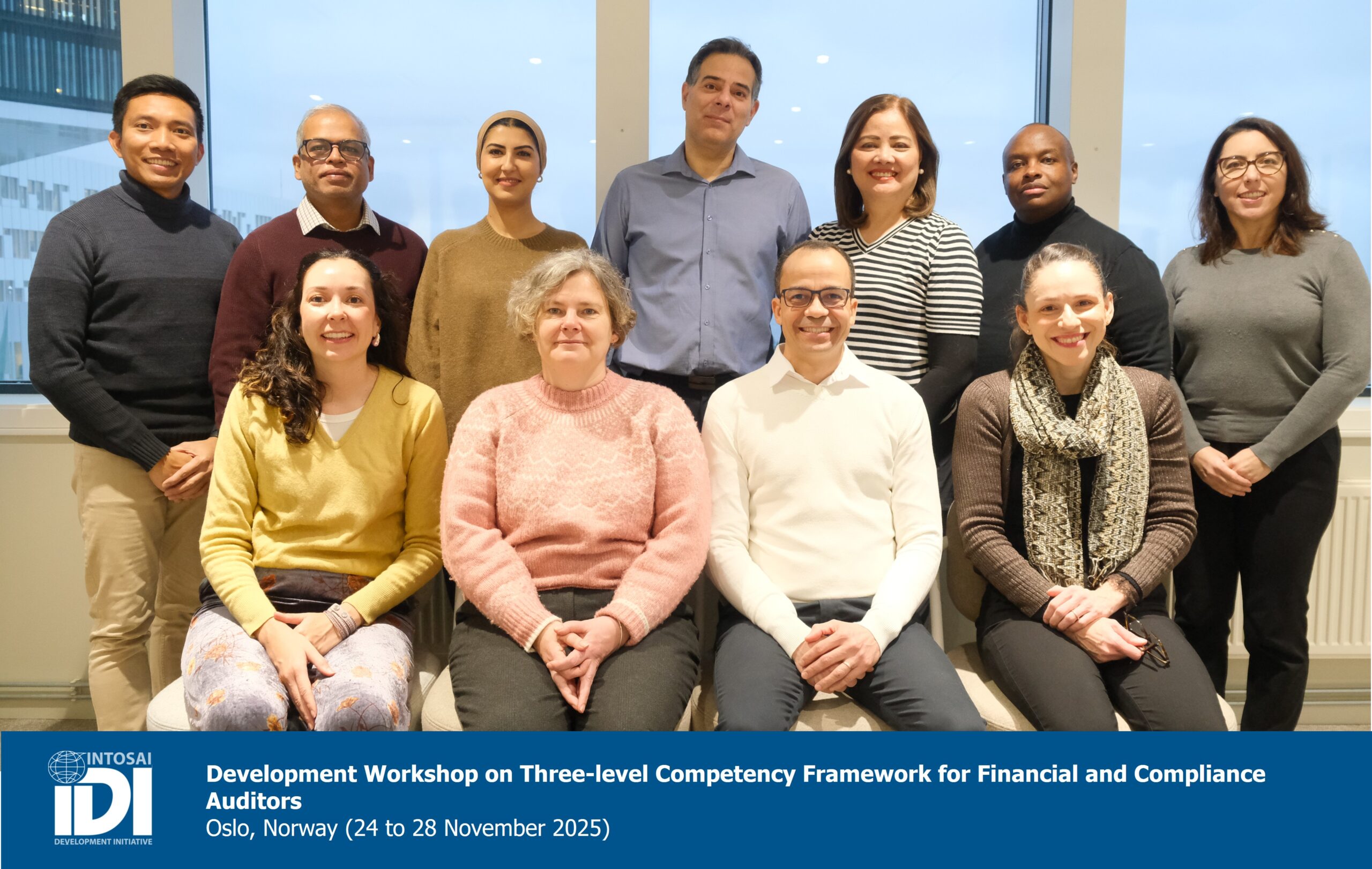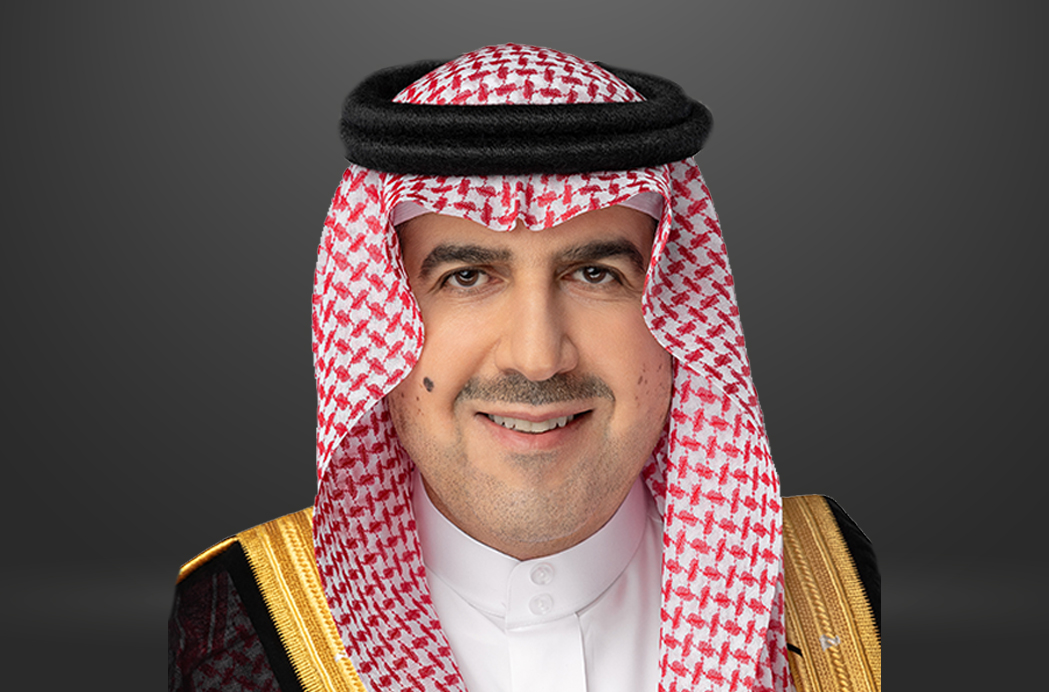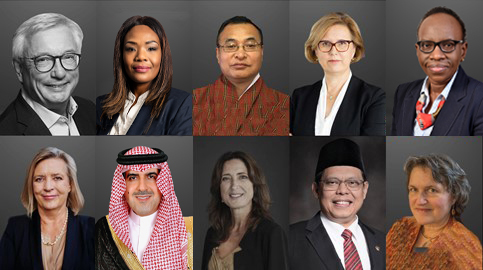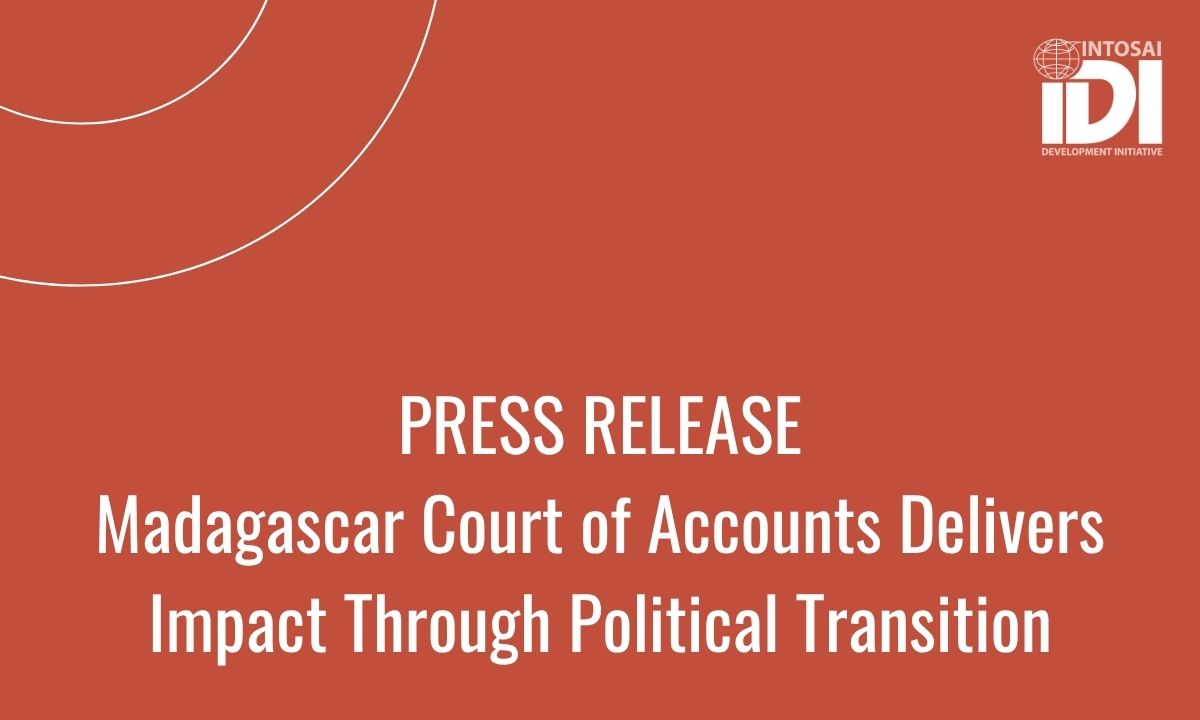We’re delighted to feature Dr. Hussam Alangari, who was recently appointed to IDI’s Board, in our ‘Meet the Board’ interview
Meet the Board: Dr. Hussam Alangari
His Excellency Dr. Hussam Abdulmohsen Alangari was appointed by Royal Decree as President of the General Court of Audit (GCA) in May 2016. Within INTOSAI, he is currently the Second-Vice-Chair, Chairman of the Policy, Finance, and Administration Committee (PFAC), and Co-Chair of the INTOSAI-Donor Steering Committee (IDSC). He is also the Chair of ARABOSAI and a member of the ASOSAI Governing Board. In addition, he chairs the Arab Confederation for Institutes of Internal Auditors as well as the Saudi Institute of Internal Auditors (IIA) Board of Directors and is a member of the IIA Global Board of Directors.
Dr. Alangari received his Doctoral Degree in Accounting and Financial Management from the University of Essex in the UK in 2000. In 2008, he was promoted to Full Professorship Rank from King AbdulAziz University in Saudi Arabia, where he has worked as a Lecturer and Academic Scholar as well as Dean of the Faculties of Economics and Administration and of Law.
After his academic career, Dr. Alangari was appointed as a member of Ash-Shura Council (the Saudi Parliament) for four years (2013-2016), during which he was elected Vice-Chair of the Financial Committee for the first two years, and then Chair of the same Committee for the following two years.
Q1. Your SAI, the General Court of Audit of Saudi Arabia, established the Saudi Fund for Improved SAI Performance (FISP) in a time of crisis during COVID-19. Through the fund, SAIs could quickly benefit from grants to address operating issues arising from COVID-19. This was a big success and very welcome. What are your lessons learnt from this experience?
What I have learnt from this initiative is to never underestimate any support provided. No matter how small that support might seem, it will contribute to overall development. In fact, I would like to encourage all my colleagues to support their peer SAIs, whether through their exchange of knowledge and expertise or through peer SAI training, to live up to the INTOSAI motto of “Mutual experience benefits all”.
The other significant lesson learnt from this programme is that, especially during crises, immediate support seems more attractive to SAIs than long term support. The GCA has acted as a donor during the pandemic to provide emergency support based on the needs of each SAI within the specific scope of purchasing technology and IT tools. We had amazing feedback from SAIs on how this support allowed them to resume working during the lockdown or distance restriction, and to develop the technological infrastructure of their SAI which allowed their staff to work from home comfortably and smoothly.
I am very pleased to highlight that Saudi FISP remains available for a third round, and it has indeed – and continues to be – successful. In my role as the GCA President, I am very keen to make a valuable change and contribute fruitfully to the INTOSAI Community. Saudi FISP provides a great contribution and makes valuable changes to SAIs in challenging situations when it is most needed.
Q2. How can we continuously ensure INTOSAI’s active role in matching SAI needs with funding?
There is already a substantial effort being made from IDI and the ID-SC to match SAIs with available funding. This effort should continue and develop to meet SAIs’ needs. For example, SAI PMF assessments of SAIs that are looking for support is beneficial to assess their needs and priorities in an ever-evolving world. In addition to continuous effective communication from IDC and IDI with donors and partners to encourage their engagement and support, I believe we should generate and increase donor interest by engaging them in relevant activities and promoting the importance of funding through the presentation of success stories.
That said, matching donors with SAIs has become quite challenging lately. It occurs to me that this could be due to donors’ interest in focusing on what is essential to contribute to the overall economic development of the country. Therefore, it is essential that we as INTOSAI continue to collaborate to advocate for the importance of having strong SAIs to resist misuse of funds.
The need to protect the economic development of developing countries may encourage donors to support SAIs in becoming operationally fit, to be able to safeguard public money. SAIs should be ahead of the curve to predict and address prominent trends to become a credible SAI. For example, INTOSAI has established many working groups to support SAIs in the highly topical areas of auditing climate change and digitalization, and the GCA has provided support to IDI on the Cooperative Audit of Climate Change Adaptation Actions to help INTOSAI focus their efforts on this emerging challenge. As a result of such initiatives, the need to support SAIs in developing countries with technological infrastructure and environmental auditing is becoming essential.
I believe prioritising the needs in line with the world’s collective challenges, interests, vision and direction will help to match SAIs with donors more rapidly. Thus, INTOSAI should continue to develop and review the needs that are of equal interest to SAIs and donors, and be flexible about the scope and timescales of support if it doesn’t succeed in matching donors and SAIs.
Q3. You have long-term experience in the INTOSAI family. You serve in many different INTOSAI functions: as INTOSAI second vice-chair, the Chair of the Policy, Finance, and Administrative Committee (PFAC), as Co-Chair of the INTOSAI Donor Steering Committee and President of ARABOSAI to name some. How will you bring in this manifold and rich experience to IDI’s Board?
The experience I carry from the roles I have served is in parallel with IDI’s mandate – supporting the capacity development of SAIs in developing countries and challenged SAIs.
I am very familiar with what INTOSAI needs and how it is best served and delivered in order to support SAIs in challenging situations. I am confident that with the experience I hold I can influence and inspire the IDI Board through the knowledge I carry, on how to best support and meet the needs of the SAIs in the INTOSAI community.
Read more ‘Meet the Board’ interviews on IDI’s website – and watch out for our next interview with new Board member, Nancy Gathungu, Auditor-General of Kenya, coming soon.
Initiative
Topics
Recent News
